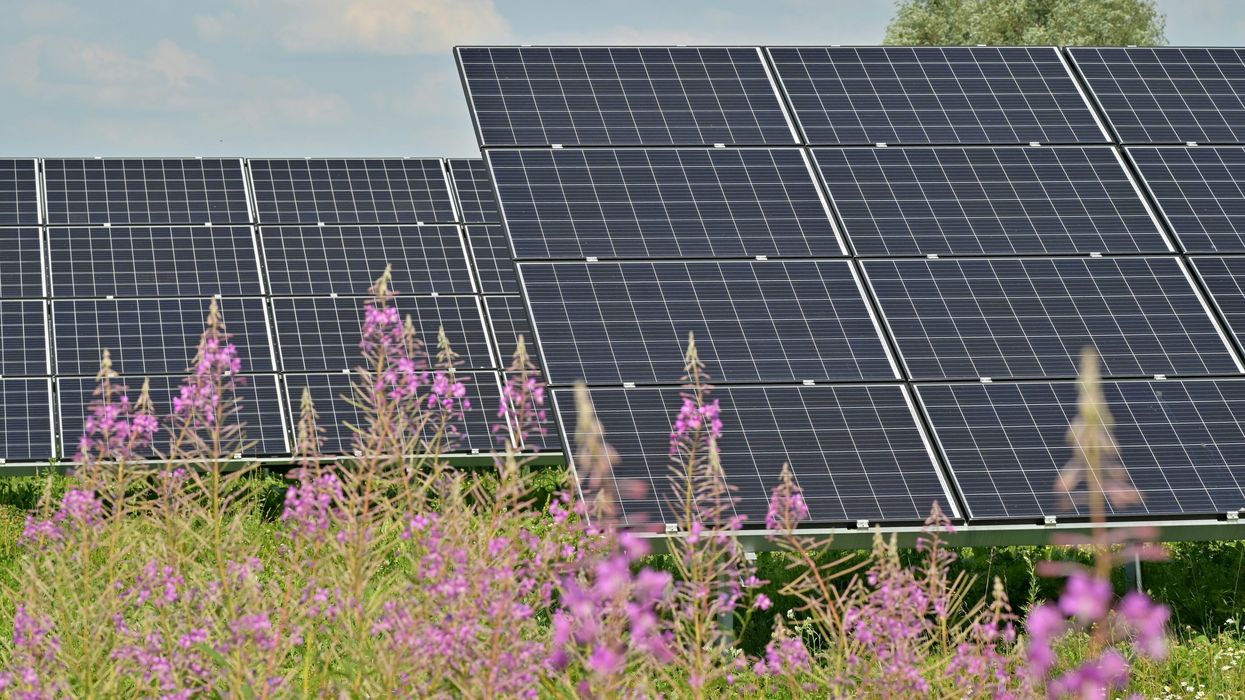Tucked away behind a Catholic organization building in northeast Washington, D.C., lies a vast solar farm soaking up the sun’s rays as energy for Catholic buildings.
Dan Last, the co-executive officer of Mission Energy, which is partnered with the Catholic Energies Program, helped build this solar farm for Catholic Charities along with 18 other solar farms for Catholic organizations in the Washington metropolitan area. But most recently, Last said he has been taking screenshots of the United States Department of Energy websites because of the “uncertainty” President Donald Trump’s administration has introduced into the industry.
“Rather than going out and trying to give nonprofit organizations equal access to solar and help develop new projects so that I can employ my people, I am a highly paid CEO who is taking screenshots,” Last said.
Since taking office, The New York Times reported the Trump administration has taken down more than 8,000 web pages from across more than a dozen U.S. government websites. This includes more than 3,000 pages from the Center for Disease Control and more than 1,000 pages from the Office of Justice Programs.
Several pages mentioning environmental policy initiatives have also been taken down from the Department of the Interior website.
What Last is screenshotting in response are Energy Community Maps. Last said these are areas “disproportionately” impacted by power production, meaning they are communities surrounded by infrastructure like power plants or mining sites.
 One of Last’s screenshots of Energy Community Maps, blurred for security purposes. (Courtesy of Dan Last)
One of Last’s screenshots of Energy Community Maps, blurred for security purposes. (Courtesy of Dan Last) These screenshots Last took shows individuals in areas eligible to receive an extra 10% of direct pay for renewable energy projects affiliated with the Inflation Reduction Act.
Former President Joe Biden passed the Inflation Reduction Act (IRA) in 2022 which partly helped individuals and businesses receive tax credit if they install renewable energy on their property. For Last and his clients at Catholic nonprofits at Mission Energy, the Inflation Reduction Act subsidizes 30% to 50% of the costs for their projects through direct pay.
“It really was a game changer for nonprofit organizations,” Last said.
On Trump’s first day in office on Jan. 20, one of 26 executive orders he signed titled, “Unleashing American Energy,” stopped individuals and organizations from receiving funding for projects like the ones from Mission Energy. This order still remains in effect.
“All agencies shall immediately pause the disbursement of funds appropriated through the Inflation Reduction Act of 2022,” the executive order stated.
Last said he is not sure what will happen if IRA funding completely goes away. But if it stops, the funding of renewable energy projects will shift back towards Power Purchase Agreements, a method organizations used before the IRA. These agreements have third party developers pay for renewable energy projects and are paid back from the organizations to investors over a set amount of years.
“[Third party developers] like working with our groups because churches, Catholic healthcare systems, religious communities are not going anywhere and in some cases have been around for hundreds of years,” Last said in a previous Planet Forward article.
Third party developers for renewable energy projects are only allowed in at least 29 states and Washington, D.C.
Out of Mission Energy’s 40 completed projects, 26 of them have used a Power Purchase Agreement. Since the passage of the IRA, only two out of the 14 projects under construction are having a Power Purchase agreement. All 14 projects are using some IRA benefits with 12 of them using direct pay.
Besides working with Catholic institutions, Mission Energy also works with other nonprofits. Last said before the IRA, most groups chose to go the Power Purchase Agreement route. Last year Last said only one Power Purchase Agreement was settled for a project.
“I’ll proudly say this as a CEO of a solar company, I think it would be ludicrous to repeal the direct pay,” Last said.
IRA funding for Catholic organizations’ green energy uncertain under Trump administration was first published on Planet Forward and was republished with permission.
Maggie Rhoads is a student journalist attending George Washington University School of Media and Public Affairs. At The Fulcrum she covers how legislation and policy are impacting communities.




















Trump & Hegseth gave Mark Kelly a huge 2028 gift